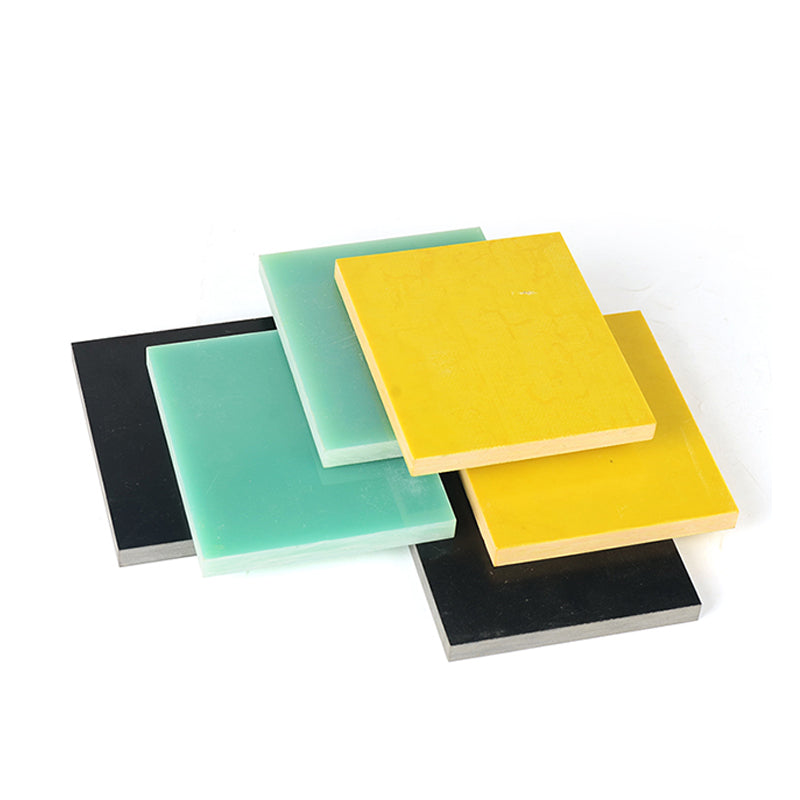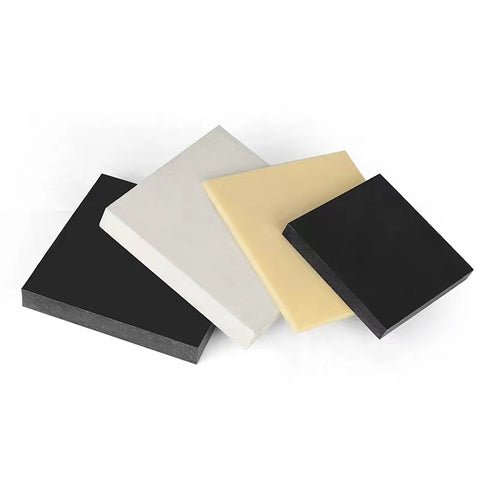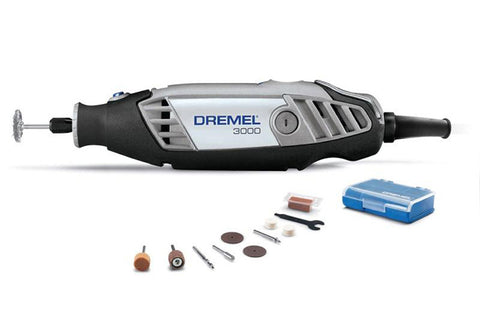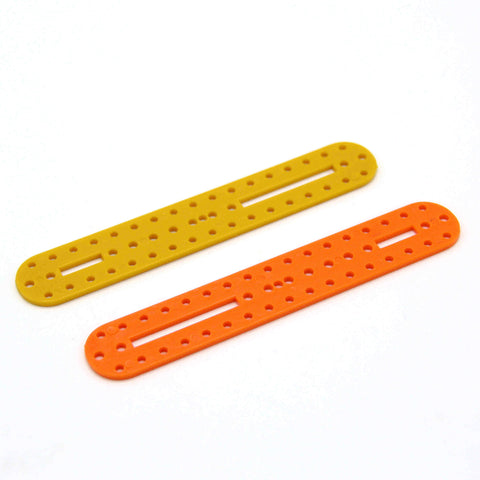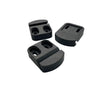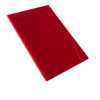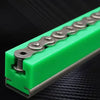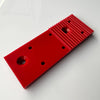Precision Cutting of ABS Sheets: A Guide for Industrial Equipment Manufacturers
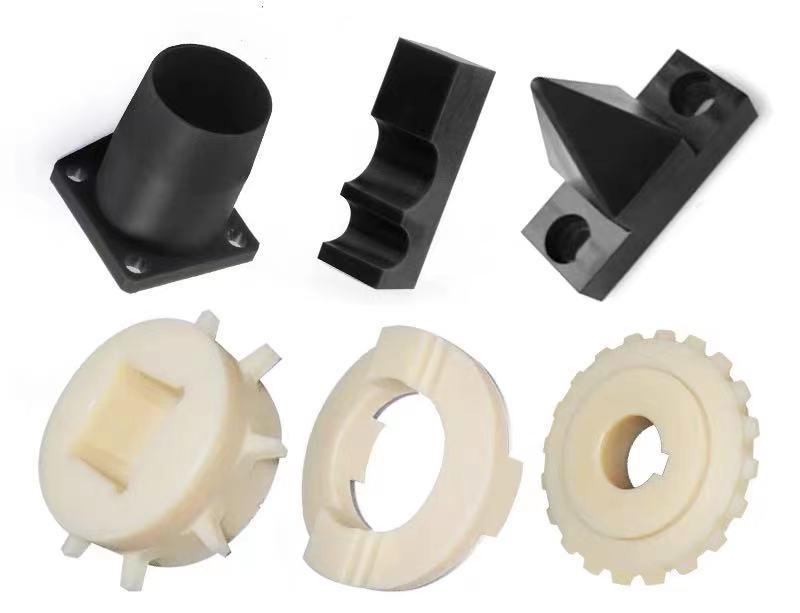
Laser Cutting ABS Sheets: Precision and Efficiency in Industrial Manufacturing
In the world of industrial manufacturing, the use of laser cutting technology for shaping ABS sheets has become increasingly popular due to its unmatched precision and efficiency. This section explores the numerous benefits and the sophisticated techniques involved in laser cutting ABS plastic, a key material in industrial applications.
The Advantages of Laser Cutting in Industrial Applications
Unparalleled Precision
One of the most significant advantages of laser cutting is its extraordinary precision. The laser beam is capable of making incredibly fine cuts, which is essential for detailed designs and intricate patterns in ABS plastic sheets. This precision is particularly beneficial for industries where exact measurements and tight tolerances are crucial.
Enhanced Efficiency and Speed
Laser cutting stands out for its efficiency. Unlike traditional mechanical cutting methods, laser cutting can swiftly move through ABS material, significantly reducing production time. This speed does not compromise the quality of the cut, making it an ideal choice for high-volume industrial manufacturing.
Versatility in Cutting
Another key benefit of laser cutting is its versatility. It can easily handle various thicknesses and sizes of ABS sheets, making it a one-stop solution for diverse industrial needs. This flexibility allows manufacturers to experiment with different designs and applications.
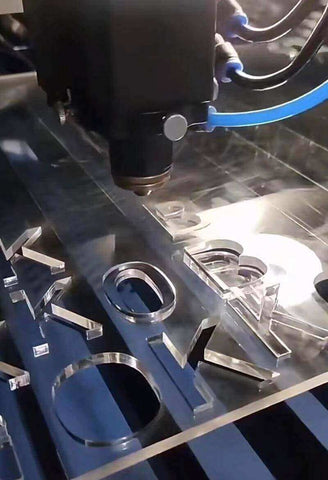
Best Practices in Laser Cutting ABS Sheets
Choosing the Right Laser Cutter
Selecting the appropriate laser cutter is crucial. For ABS sheets, a CO2 laser cutter is often recommended due to its effectiveness in cutting non-metallic materials. The power of the laser should be adjusted according to the thickness of the ABS sheet.
Optimizing Cutting Parameters
To achieve the best results, it's important to optimize the cutting parameters such as speed, power, and frequency of the laser. These parameters should be adjusted based on the thickness and color of the ABS sheet, as well as the complexity of the design.
Safety and Ventilation
Safety is paramount when operating laser cutters. Always use protective eyewear and ensure that the cutting area is well-ventilated. ABS plastic can release fumes when heated, so proper ventilation is essential to maintain a safe working environment.
Revolutionizing Industrial Manufacturing with Laser Cutting
In conclusion, laser cutting represents a revolutionary approach in the field of industrial manufacturing, especially when working with ABS sheets. Its precision, efficiency, and versatility make it an invaluable tool in the production of high-quality, intricate components for various industrial applications. By adhering to best practices and safety standards, manufacturers can harness the full potential of laser cutting to elevate their production capabilities.
Custom Cut ABS Sheet Solutions: Tailoring to Industrial Needs
In the dynamic field of industrial manufacturing, the ability to customize materials to specific requirements is crucial. Custom cut ABS sheets play a pivotal role in this, offering tailored solutions that meet the unique needs of various industries. This section delves into how custom cutting of ABS sheets can be optimized to create parts and components for machinery and equipment.
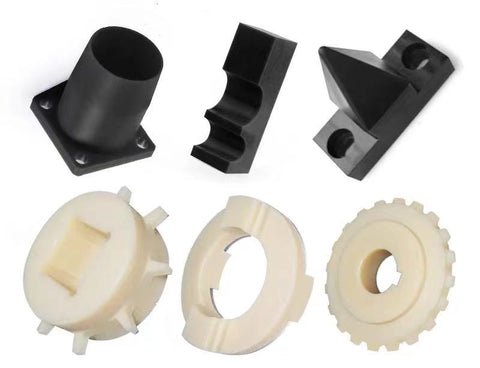
Meeting Diverse Industrial Requirements with Custom Cut ABS
Versatility in Applications
Custom cut ABS sheets are highly versatile, making them ideal for a wide range of industrial applications. Whether it's for automotive parts, electronic housings, or machinery components, the ability to cut ABS sheets into custom shapes and sizes allows manufacturers to meet very specific design and functionality requirements.
Precision and Consistency
Custom cutting ensures precision and consistency in the dimensions of the ABS parts, which is critical in industries where even minor deviations can lead to significant issues. This precision is particularly important in sectors like aerospace and medical equipment manufacturing, where accuracy is paramount.
Techniques and Technologies for Custom Cutting
Advanced Cutting Methods
Utilizing advanced cutting methods such as CNC machining, laser cutting, and waterjet cutting allows for intricate designs and precise dimensions. These technologies enable manufacturers to produce complex shapes with smooth finishes, which might be challenging with traditional cutting methods.
Design Flexibility
With custom cutting, designers and engineers have more flexibility in creating parts. They can experiment with complex geometries and intricate patterns, knowing that the cutting technology can accurately replicate these designs in the ABS material.
Tailoring Solutions for Specific Industrial Needs
Understanding Client Requirements
A key aspect of providing custom cut ABS solutions is understanding the specific needs of each client. This involves collaborating closely with clients to comprehend the intended use of the ABS parts, the environmental conditions they will be exposed to, and the mechanical properties required.
Customization Beyond Cutting
Custom cutting is just the beginning. Post-cutting processes like bending, gluing, or finishing can further tailor the ABS sheets to specific requirements. This holistic approach ensures that the final product not only fits the size and shape specifications but also meets the functional demands of the application.
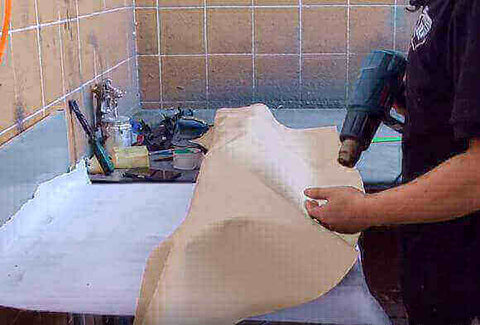
Enhancing Industrial Capabilities with Custom Cut ABS
In conclusion, custom cut ABS sheets are a cornerstone in modern industrial manufacturing, offering unparalleled flexibility and precision. By leveraging advanced cutting technologies and understanding the unique needs of each industrial application, manufacturers can deliver high-quality, custom-tailored ABS solutions. This adaptability not only meets but often exceeds the expectations and requirements of various industries, solidifying the role of custom cut ABS in the future of manufacturing.
The Art of Bending ABS Sheets: Techniques and Tips
Bending ABS sheets is a critical process in the fabrication of complex parts and components for various industrial applications. This section provides a deep dive into the techniques and tips for effectively bending ABS sheets, a process that adds versatility and functionality to this already popular material.
Understanding the Basics of ABS Sheet Bending
The Flexibility of ABS
ABS (Acrylonitrile Butadiene Styrene) is known for its strong, yet flexible properties, making it an ideal candidate for bending and shaping. This flexibility is particularly beneficial in industries where custom curved shapes or angled components are required.
Importance of Controlled Heating
The key to successful bending of ABS sheets lies in controlled heating. ABS becomes pliable at certain temperatures, allowing it to be bent without cracking or breaking. However, overheating can lead to deformation or loss of mechanical properties, so maintaining the right temperature is crucial.

Techniques for Bending ABS Sheets
Using a Heat Gun or Strip Heater
One common method for bending ABS is using a heat gun or a strip heater. These tools provide focused heat, making it easier to bend the ABS sheet at specific points. It's important to heat the sheet evenly along the line where the bend is desired.
Tips for Effective Heating
- Move the heat source evenly back and forth along the bend line.
- Avoid overheating by constantly monitoring the temperature.
- Practice on scrap pieces to get a feel for the right temperature and timing.
Bending Jigs for Consistency
For repeated bends or consistent angles, using a bending jig can be extremely helpful. A jig ensures that each bend is uniform, which is essential for producing multiple pieces that need to fit together precisely.
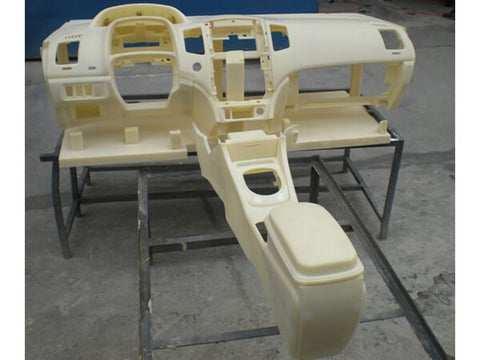
Post-Bending Considerations
Cooling and Setting
After bending the ABS sheet to the desired angle, it's important to let it cool and set properly. Cooling can be done at room temperature or using a cooling jig to maintain the shape. Avoid moving the sheet until it has fully set to prevent any warping or distortion.
Finishing Touches
Post-bending finishing may include sanding the edges or applying a sealant for additional strength. These finishing touches not only improve the appearance of the bent ABS sheet but can also enhance its durability and fit for specific applications.
Mastering the Art of ABS Bending
In conclusion, bending ABS sheets is an art that requires precision, patience, and the right techniques. By understanding the properties of ABS, using the appropriate tools, and following best practices, manufacturers and fabricators can create complex, high-quality components tailored to specific industrial needs. Mastering this skill opens up a world of possibilities in the design and production of innovative and functional parts.
Cutting ABS Plastic with a Hot Knife: A Detailed Guide
Cutting ABS plastic with a hot knife is a technique valued for its precision and clean edges. This section provides a comprehensive step-by-step guide on how to effectively use a hot knife for cutting ABS, along with essential safety tips and best practices.
Understanding the Hot Knife Method
The Basics of a Hot Knife
A hot knife is a tool that heats up to cut through plastic by melting it at the point of contact. This method is particularly effective for ABS plastic due to its thermoplastic properties, allowing for smooth, precise cuts with minimal physical effort.
Advantages of Using a Hot Knife
The primary advantage of using a hot knife is the ability to make clean, sealed cuts. This method reduces the likelihood of chipping or cracking, which can be common with other cutting methods. It's especially useful for intricate shapes or curves.
Step-by-Step Guide to Cutting ABS with a Hot Knife
Step 1: Preparing the ABS Sheet
- Clean the Surface: Ensure the ABS sheet is clean and free of any debris.
- Mark the Cut Line: Use a marker to draw the line where the cut will be made. This serves as a guide to ensure precision.
Step 2: Setting Up the Hot Knife
- Choose the Right Blade: Select a blade that suits the thickness and type of cut you need.
- Heat the Knife: Turn on the hot knife and allow it to reach the optimal temperature. Avoid overheating as it can cause the plastic to burn.
Step 3: Making the Cut
- Align the Knife: Position the hot knife along the marked line.
- Apply Gentle Pressure: Gently guide the knife through the ABS, letting the heat do the work. Do not force the knife; a steady, controlled motion is key.
Step 4: Finishing the Cut
- Complete the Cut: Continue until you have cut through the entire line.
- Let it Cool: Allow the cut edge to cool down before handling to prevent warping.
Safety Tips and Best Practices
Safety First
- Wear Protective Gear: Always wear heat-resistant gloves and safety glasses.
- Work in a Ventilated Area: Cutting ABS with a hot knife can produce fumes. Ensure proper ventilation in your workspace.
Achieving the Best Results
- Practice on Scrap Material: Before cutting your actual piece, practice on scrap material to get a feel for the tool.
- Maintain the Knife: Regularly check and replace the blade to ensure clean cuts.
- Control the Temperature: Adjust the temperature based on the thickness of the ABS sheet. Thicker sheets may require higher temperatures.
Mastering the Hot Knife Technique
In conclusion, cutting ABS plastic with a hot knife is a skill that combines precision with careful handling. By following this step-by-step guide and adhering to safety protocols, you can achieve clean, precise cuts on ABS sheets, enhancing the quality of your projects. This method is not only efficient but also offers a high degree of control, making it a valuable technique in any fabricator's toolkit.
Innovative Cutting Techniques: Enhancing the Durability and Functionality of ABS Parts
In the realm of industrial manufacturing, the durability and functionality of components are paramount. This section explores how advanced cutting techniques can significantly enhance these aspects in ABS parts, a material widely used in the production of industrial equipment and tools.
The Impact of Cutting Techniques on ABS Durability
Precision Cutting for Enhanced Strength
The way ABS plastic is cut can greatly influence its structural integrity. Precision cutting techniques, such as CNC machining and laser cutting, ensure that the material's strength is maintained by reducing stress and avoiding micro-cracks. This is crucial for parts that will be subjected to mechanical stress or environmental factors in industrial settings.
Clean Edges for Better Joining
Clean, smooth edges achieved through advanced cutting techniques are essential for effective joining or welding of ABS parts. This is particularly important in creating complex assemblies where multiple ABS components need to be fused together seamlessly.
Advanced Techniques for Functional ABS Parts
CNC Machining for Complex Geometries
CNC machining offers unparalleled precision in cutting ABS sheets, allowing for the creation of complex geometries and intricate designs. This technique is ideal for producing custom parts that require exact dimensions and shapes, enhancing the functionality of the final product.
Waterjet Cutting for Material Preservation
Waterjet cutting is another innovative technique beneficial for ABS parts. It uses a high-pressure stream of water, sometimes mixed with abrasives, to cut through the plastic. This method is known for its ability to cut without introducing heat, thus preserving the material's inherent properties.
Enhancing Functionality Through Design
Design Integration in Cutting Process
Incorporating design elements directly into the cutting process can significantly enhance the functionality of ABS parts. Techniques like laser engraving can be used to add functional features such as grip textures, identification marks, or aesthetic designs.
Customization for Specific Applications
Advanced cutting techniques allow for high levels of customization. This means ABS parts can be tailored to meet the specific needs of different industrial applications, whether it's for lightweight yet durable components in robotics or heat-resistant parts in machinery.
The Future of ABS Cutting in Industrial Manufacturing
In conclusion, the use of innovative cutting techniques in shaping ABS parts is a game-changer in industrial manufacturing. These methods not only enhance the durability and functionality of the parts but also open up new possibilities in design and application. By leveraging precision cutting technologies, manufacturers can produce ABS components that are not only fit for purpose but also superior in performance and quality. This advancement in cutting technology marks a significant step forward in the efficiency and capability of industrial equipment and tools.
In summary, this comprehensive guide has explored various facets of working with ABS plastic, a material integral to modern industrial manufacturing. From the precision of laser cutting and the versatility of custom cut solutions to the artistry of bending and the finesse required in using a hot knife, each technique plays a pivotal role in enhancing the durability and functionality of ABS parts. The adoption of these advanced cutting methods is not just about achieving accuracy; it's about pushing the boundaries of innovation in industrial design and production. As we continue to explore and refine these techniques, the potential for creating more complex, efficient, and reliable components in industrial machinery and equipment is limitless. This journey through the world of ABS plastic cutting is a testament to the ever-evolving landscape of industrial manufacturing, where precision, creativity, and functionality converge to drive progress and excellence.
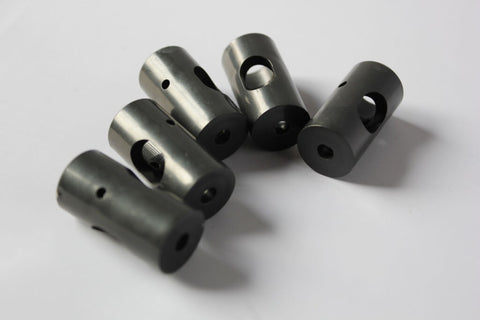
Get in Touch
We're eager to hear from you! Whether you have questions, feedback, or need expert advice on ABS plastic cutting techniques, fill out the form below and we'll get back to you as soon as possible.
🎉🎉🎉Limited Time Offer Use code: QR4GNY08SHVR at checkout and enjoy a special discount on your entire order! 👉 FR4 fiberglass plastic

